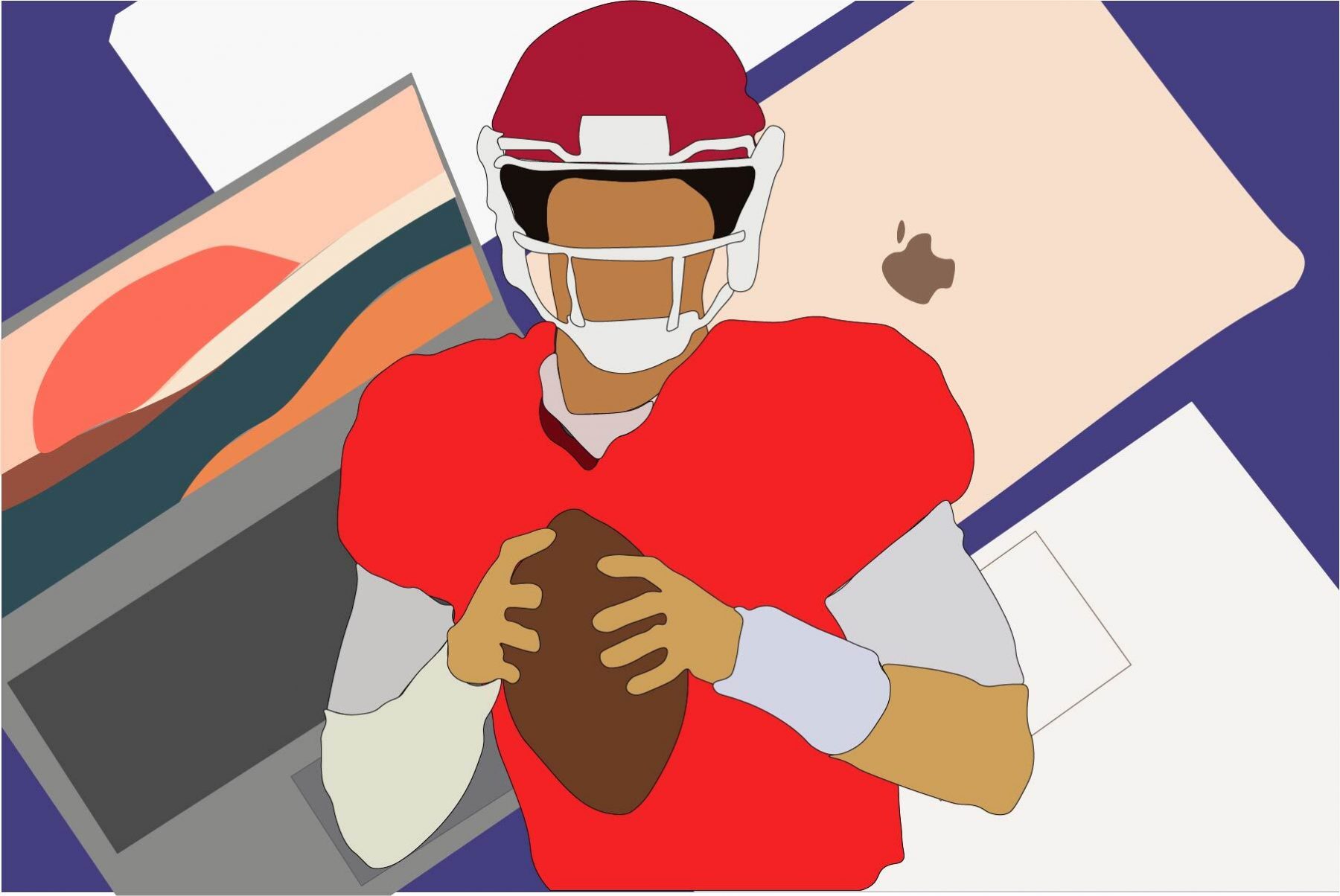Over the past few months, college students around the country have been waiting for the dreaded email or Zoom call telling them if their school would return for in-person classes or would retreat online. But while many of my peers talked about the parties they’d miss and the alcohol that would fail to be ingested, the only thought looming over me was about sports — would I get my final soccer season?
Sports are, understandably, far from the forefront of most people’s minds right now. But for anyone dedicated to their game, it’s all they can think about. Most athletes work at their craft quite literally year-round — when the competition season is over, the conditioning season begins.
For myself and millions of other college athletes, the cancellation of sports has been devastating. It’s easy to feel like all the work put into preparing for the season was for nothing; it makes sense to expect that your growth as an athlete will stagnate during what everyone is calling an “unprecedented time.”
To all the senior student-athletes who had to prematurely say goodbye to their respective sports for what might be forever, I say: Bright new journeys and experiences lie ahead. I feel for you, but the resilience and durability we have built from years of being athletes — pushing our minds, hearts and bodies to the limit every day — will help us transform this loss into an endless opportunity.
But to the rest of you young college athletes, I say: The grind doesn’t have to stop. I’m here to tell you that you have the ability to combat the stagnation and make the most of this time. The following are a handful of ways to stay connected as a team, grow individually as an athlete and come back stronger than ever — all while staying more than 6-feet apart.
Fitness
The most obvious impact of losing an in-person season is the way your fitness is affected. Either plagued with fewer resources or less motivation, it becomes significantly harder to maintain the prime physicality that is achieved while training together as a team and competing consistently at high-level and high-stakes events.
While accessibility varies for everyone, there are still ways to keep up both your inspiration and fitness during your stay-at-home sports season. For starters, there are a multitude of social fitness apps that integrate virtual interaction with workouts. Apps like FitBit, NikeRunClub, Strava, Teambuildr and others provide a way to not only track and inspire workouts, but to maintain both the competition and encouragement that makes running sprints or lifting weights the tiniest bit more bearable.
Apps like these allow you to post your training sessions for your teammates to see, and in return, you will either receive a sweet “congratulations” or someone will immediately one-up you to show you who’s boss. Both scenarios should encourage you to keep putting in work.
If not through fully developed apps, your team still has the opportunity to cultivate a motivating fitness environment. Finding yourself an “accountabilibuddy” or two is a great way to achieve your goals. All it takes is choosing a couple teammates to tell your training objectives to and listening to theirs as well and voila — you have yourself a human social fitness app.
There is no better time than now to work on what you are lacking. Want to perfect that attacking scissor? A further throw? To touch your toes? Whatever it is, let your teammates know, keep them up-to-date on your progress and nothing can slow you down.
Mental Growth
A deceivingly difficult aspect of having time off from your team and your sport is maintaining the tenacious, gritty and determined-to-the-point-of-questionable-sanity mindset that being an athlete requires. When surrounded by teammates, it’s easy to use each other as inspiration and to buy into a winning mentality. While alone, the urge to become better and the mental skills developed from in-person practice and game experience seems like a dream from another life.
One great way for a team to both stay connected and grow mentally as individual athletes is to read a team book and have a chill virtual book club. While some claim to have too much reading to do for school or that words “just aren’t their thing,” meeting on a call as a team and discussing shared goals and interests can be a great kick-start to a fruitful reading experience. Your team can choose any genre or subject it wants, but it’s worth it to consider one that focuses on self-improvement, teamwork or any themes relevant to the world today.
Two titles focused on developing the athlete mentality are “Grit” by Angela Duckworth and “Mindset” by Carol S. Dweck, but the possibilities are endless. If your team is interested in educating themselves on important social justice issues and learning more about the intersection of life and sports, two titles to check out are “The Heritage” by Howard Bryant and “A Team of Their Own” by Seth Berkman.
Whatever book you choose, the good news is that it can be unique to your team’s interests and goals while being read at whatever pace the group decides. Plan with intention and remember that this isn’t a graded assignment — it’s a fun way to engage with interesting ideas and learn about yourself, each other and your space as athletes in the world around you.
Another great way to stay connected while developing your mental game is to have virtual viewing parties of professional sports games and events. Watching the best of the best always benefits the athlete watching, and with the number of sports that are managing to safely continue their seasons amid the pandemic, the options are endless.
If your particular sport isn’t in season, it’s just as beneficial to rewatch old pro games and competitions with teammates. And if your coach can give you access to footage of your own team competing, even better. There’s no easier way to understand yourself as an athlete than to watch yourself and your teammates in action.
The bottom line is that there’s no excuse to avoid working on your mental game. While the reward may not be as immediate as physical growth, spending time learning alongside teammates will ultimately strengthen the team chemistry and transform you as a player.
Health
With all of this being said, the number one priority of this time must be to stay mentally and physically healthy. While maintaining your fitness is important, integrating rest days is crucial for a long athletic career. Especially without knowing when and where the next time you compete in person will be, doing what’s right for your body should be the main focus of your quarantine.
The same goes for mental health. Pandemic aside, upper-level athletes already face myriad stresses and pressures that can lead to mental health issues. Combining this with the reality of the current state of the world may take a major toll.
Team meditation, yoga, journaling sessions or a simple stretch can help ground and provide clarity for yourself and others. Making sure to check in on your teammates as much as possible is critical for making it through your stay-at-home sports season. There is no shame in needing a break or a virtual shoulder to lean on, and there is no better person to understand how you’re feeling than another athlete going through almost the same exact thing.
And lastly, keep in mind that athletes are resilient. It’s a trait that brought us to sports in the first place. We’ve been knocked down a million times before, yet we remain standing. Use this time to grow stronger, wiser and, most importantly, more appreciative of the time you do get to spend with your teammates and playing the game you love, whenever that day comes.

















